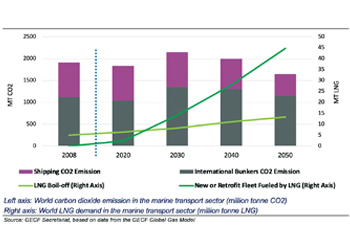
Wärtsilä to build largest bioLNG plant
DUBAI: The technology group Wärtsilä will supply a biogas liquefaction plant to Norway-based Biokraft, a subsidiary of the Scandinavian Biogas Group and a major player in the global biogas market.
The 25 tonnes per day capacity plant will extend an existing bioLNG production plant at Skogn in Norway, also supplied by Wärtsilä, to a combined total of 50 tonnes per day making it by far the largest facility of its kind in the world. This latest order was placed with Wärtsilä in April 2021.
The market for liquefied biogas continues to expand along with the increase in global efforts to restrict the use of fossil fuels. BioLNG is an abundant renewable energy source that is used as ‘green’ fuel in transportation, industrial, and marine applications. The Wärtsilä equipment is scheduled for delivery in May 2022.
US energy firms to create $17bn merger
NEW YORK: Cabot Oil & Gas Corp and Cimarex Energy agreed a merger to form a US-wide oil and gas firm with an enterprise value of some $17 billion, a deal analysts termed surprising in a sector recently focused on "pure-play" models.
US shale producers have in recent years tended to focus on a single geography to optimize cost savings and attract investors, though the pure-play model has not stopped money managers exiting amid poor returns versus other economic sectors and environmental concerns.
Under the deal terms, Cimarex shareholders will get 4.0146 shares of Cabot stock for each share held, and will own 50.50 per cent of the combined company.
At an implied equity value of $7.4 billion, or $71.50 per Cimarex share, the deal reflects a less than 1 per cent premium to the oil producer's Friday close.
JX Nippon to sell UK North Sea assets
LONDON: Japan's JX Nippon wants to sell its British North Sea oil and gas assets including stakes in some of the basin's biggest fields in a deal that could fetch up to $1.5 billion.
The sale is the latest deal in the North Sea marking the handover of assets from oil majors to private companies, which say they can better exploit remaining reserves than huge companies focusing on the energy transition.
Culzean, with its 300 million barrels of reserves, can cover 5 per cent of Britain's gas needs alone, according to Total. The fields produced a net 6,500 barrels of oil equivalent per day for JX Nippon in 2018, before the start of Mariner and Culzean in 2019, according to its website.
JX Nippon entered the basin in 2002 and bought more fields, as well as being awarded exploration licences, in the years after.







































































